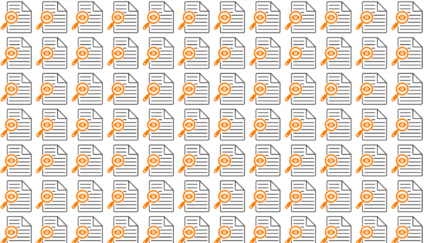How to write faster: Life hacks & tools to speed up your writing
Despite the overarching goal of the typical writer to deliver copy of the utmost care and quality at each beck and call, there are unfortunately always reasons to hurry. Whether you’re cracking through an essay, an article or are a business owner working your way through one of many writing tasks, there’s usually a sense of urgency and a need to achieve an average typing speed like no other.
So how do we ensure writing quality is maintained while deadlines loom? How long does it take to write 1,000 words that adhere to a good standard? How to write an essay fast? Find out how to write faster and better from our life hacks and tools below.
Speak Up! Use Voice to Text to Get Your Thoughts Down
First up: an alternative view on how to write faster. Speak instead! Some of us prefer to speak rather than write. If this sounds like you, look into getting a dictation tool to speed up the writing process. Technology in this department has come on leaps and bounds in recent years, and all you have to do is speak your thoughts out loud. While there will of course be some heavy editing following this, it will ensure you’re not missing out on any nuggets bred of that wonderful thing called spontaneity.
Distraction-Free Writing Tools
We live in a world where it’s possible to have the luxury of working from home or on our own flexible terms to help achieve that zen-like state required for writing. However, alongside the temptations of the internet, there are host of distractions available when all you want to do is write.
Every writer should consider distraction-free writing tools. These are simple writing interfaces that allow you to do what you need to do which is simply write. Some distraction-free tools come with calming background noises, even old-fashioned typewriter sounds to keep you in the right focused frame of mind.
Apps and Plugins For Proofreading And Editing
There are a wide range of apps, tools, and plugins designed to help writers improve their productivity through various stages of the writing process. These can help you edit and proofread your work as well as ensure that your writing is as readable as it can be. Check out Grammarly, the Hemingway app, Evernote, and Ulysses to get started.
Write Anywhere With Cloud-Based Tools
There’s more time in the day to write than you might realise, it’s just a matter of taking advantage of what’s available to you such as those little five and ten minute blocks of free time that may emerge during the day. You can be prepared for this by using cloud-based tools which enable you to be ready to write no matter where you are.
Don’t Edit Midflow
The perennial curse of the perfectionist. As a writer, your first instinct is to fix that spelling mistake or re-read the paragraph you’ve just written to check for cohesion. While you should never lose your attention to detail, you should park your impulsive need to edit as you write and indulge in maintain your writing drive and average typing speed instead. There’s always time to revisit and apply edits once you’ve got through a particular writing session (the aforementioned apps and plugins can help you with that!). Remember that perfectionism can really slow down progress.
Square Away Links and Resources First
Once you have a writing topic, don’t start typing right away. Instead, take the time to search for sources first. As long as you have reputable, reliable sources, you will have links to back your point. You will also have resources to back your writing. This will give you a real head start, especially when you compare this to the time it takes to find links and resources afterwards.
Write to Educate, Inform and Entertain. Not to Impress
While many writers, budding or otherwise, may have lofty aspirations beyond what the day job requires of them, very few are aiming to win the Pulitzer Prizes or the Nobel Prize for Literature. We write to connect with our audiences, create engagement, and to establish thought leadership. While there’s always room a little flair here and there, there’s no need to write in circles trying to impress people with literary gymnastics. Instead, write naturally as you would if you were speaking to your audience. This will enable your writing to flow quickly, and you’ll find that you finish writing projects much more efficiently.
Maintain a List of Writing Ideas
Sometimes the issue isn’t that you can’t write quickly; it’s rather you can’t write quickly on a particular topic, or don’t have the right topics to hand. By brainstorming or keeping a relatively long list of writing ideas, you can always pick the topics that you’re ‘feeling’ at any given time. This means you spend less time thinking up new ideas, and that you can easily find a topic that you can begin working on quickly. In case you prefer to write a quick outline before the full draft, you can try free thesis generator tools to help.
To Summarise…
Try a few of these tricks and tools. Before long, you will find that you are writing faster without sacrificing quality at all. Many of the freelance writers available on PeoplePerHour are well versed in the art of delivering quality writing with short deadlines in mind. So whether it’s an article you need help on or whether it’s assistance with a technical writing, check out our talent pool of freelance writers to help you with your project.













